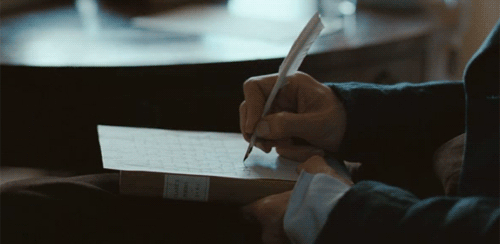The Victorian Period and the 19th Century (1832-1901 CE)
INTRODUCTION TO THE VICTORIAN PERIOD
Writings from the period of Queen Victoria's reign include sentimental novels. British writers include Elizabeth Browning, Alfred Lord Tennyson, Matthew Arnold, Robert Browning, Charles Dickens, and the Brontë sisters. Pre-Raphaelites, like the Rossetti siblings and William Morris, idealize and long for the morality of the medieval world.
The end of the Victorian Period is marked by the intellectual movements of Aestheticism and "the Decadence" in the writings of Walter Pater and Oscar Wilde. In America, Naturalist writers like Stephen Crane flourished, as did early free verse poets like Walt Whitman and Emily Dickinson.
Victorian novels tend to be idealized portraits of difficult lives in which hard work, perseverance, love and luck win out in the end. They were usually inclined towards being of improving nature with a central moral lesson at heart. While this formula was the basis for much of earlier Victorian fiction, the situation became more complex as the century progressed.
CHARACTERISTICS OF VICTORIAN POETRY
Victorian Poetry was also indifferent to the already stated style. Much of the work of the time is seen as a bridge between the Romantic era and the modernist poetry of the next century.
Alfred Lord Tennyson held the poet laureateship for over forty years. The husband-and-wife poetry team of Elizabeth Barrett Browning and Robert Browning conducted their love affair through verse and produced many tender and passionate poems.
The reclaiming of the past was a major part of Victorian literature and was to be found in both classical literature and the medieval literature of England. The Victorians loved the heroic, chivalrous stories of knights of old and they hoped to regain some of that noble, courtly behavior and impress it upon the people both at home and in the wider empire.
In dramatic, farces, musical burlesques, extravaganzas, and comic operas competed with Shakespeare productions and serious drama by the likes of James Planche’ and Thomas William Robertson.
The discoveries of science seem to reflect considerable and particular effects on the literature of the age. The Victorians had a mission to describe and classify the entire natural world. Much of this writing was not regarded as literature but one book, in particular, Charles Darwin’s On the Origin of Species, remains famous.
The theory of evolution contained within the work shook many of the ideas the Victorians had about themselves. Although it took a long time to be widely accepted, completely changed following thoughts and literature.
The old Gothic tales that came out of the late 19th century are the first examples of the genre of fantastic fiction. These tales often centered on larger-than-life characters such as Sherlock Holmes, the famous detective of the times, Barry Lee, big time gang leader, Sexton Blake, Phileas Fogg, and other fictional characters of the era, such as Dracula, Edward Hyde.
WRITERS AND POETS IN VICTORIAN ERA
- Jane Eyre
- Charles Dickens
- Elizabeth Browning
- P. B. Shelley
- William Wordsworth
 |
| P. B. Shelley |
.jpeg) |
| William Wordsworth |
.jpeg) |
Charles Dickens |




Comments
Post a Comment